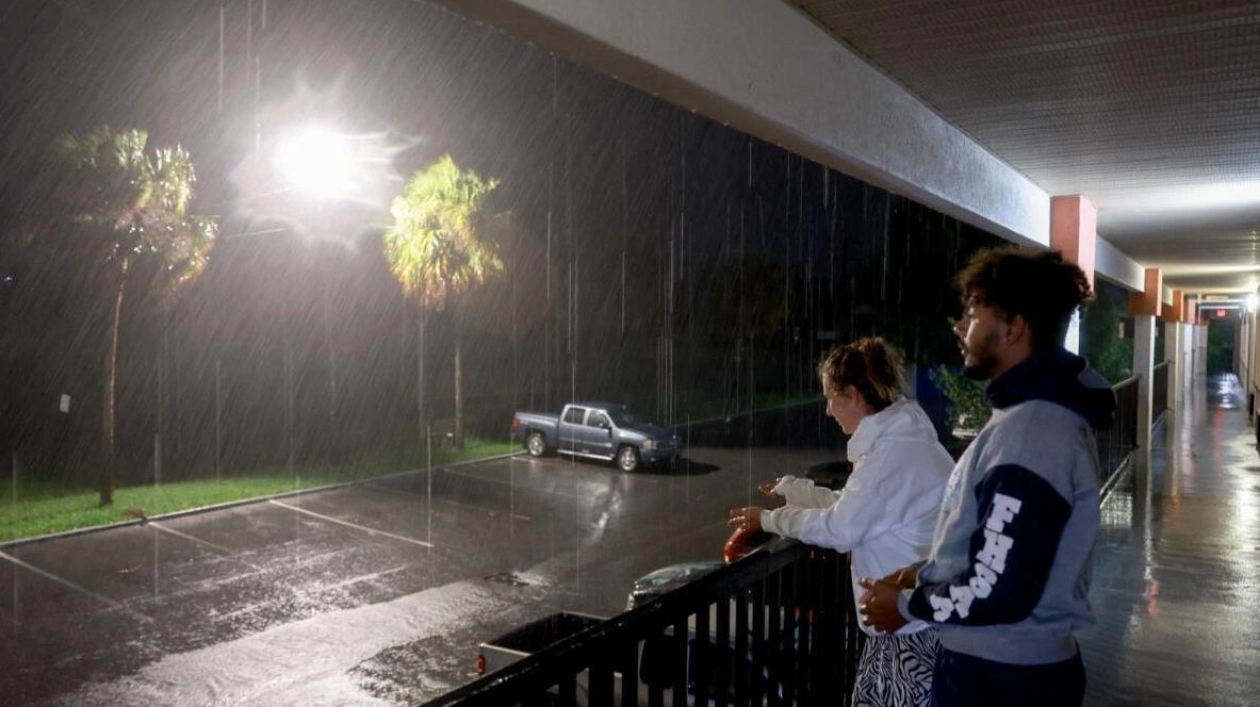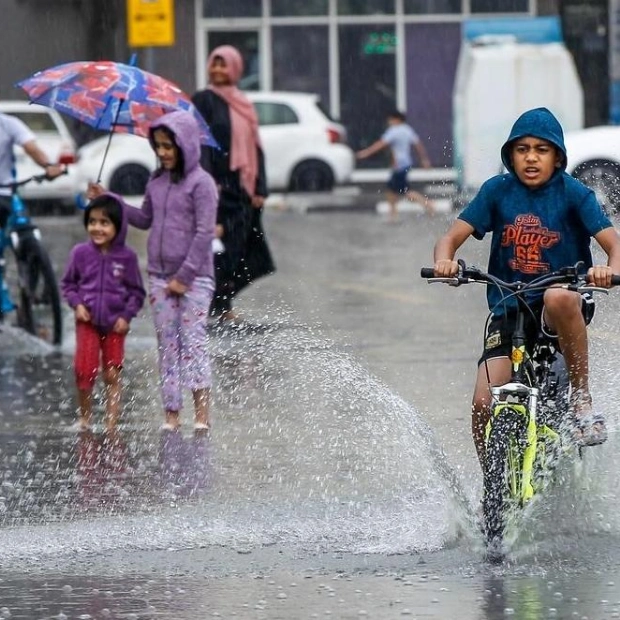Hurricane Debby landed as a Category 1 storm in Florida's Big Bend region along the Gulf Coast on Monday morning, initiating a sluggish trek across the state. This resulted in potentially hazardous storm surges, substantial rainfall, and devastating floods.
The hurricane hit near Steinhatchee, Florida, approximately 115km southeast of Tallahassee, with maximum sustained winds of 130kmph, according to the National Hurricane Centre. The storm intensified from a slow-moving tropical storm, fueled by warm Gulf waters. The hurricane centre predicted life-threatening conditions, including storm surges reaching up to three meters in certain areas.
The storm is anticipated to deliver 'potentially historic rainfall' ranging from 25 to 50cm, and catastrophic flooding to Georgia and South Carolina, as stated by the NHC. Local areas could experience up to 70.2cm of rain by Friday morning.
"This is going to be the story of this storm," remarked Jamie Rhome, the deputy director of the hurricane center. "Its slow motion is going to unleash historic amounts of rainfall — potentially over 50cm. We're talking about catastrophic flooding." Rhome noted that Debby was powered by unusually warm Gulf waters, reminiscent of Hurricane Harvey, which struck Corpus Christi, Texas, in August 2017.
Harvey, one of the wettest storms in US history, caused over 100 deaths and $125 billion in damages, primarily due to flooding in the Houston metropolitan area. Climate scientists attribute the increased intensity of storms to man-made global warming from fossil fuel combustion, which raises ocean temperatures.
Florida Governor Ron DeSantis reported that approximately 143,000 Floridians were without power following the storm's landfall. In preparation for Debby, DeSantis activated 3,000 National Guard troops and issued emergency orders for most of the state's cities and counties, with mandatory evacuations ordered in parts of the Gulf Coast counties of Citrus, Dixie, Franklin, Levy, and Wakulla.
DeSantis also mentioned on Sunday that over 17,000 linemen and other electric workers were prepared to restore power. The governors of Georgia and South Carolina declared states of emergency in anticipation of the storm.
Debby intensified into a tropical storm late on Saturday after moving north from Cuba. As of 11pm EDT, the hurricane was approximately 161km west of Tampa, heading towards the Gulf Coast at 19kmph, with maximum sustained winds of 120kmph, according to the NHC.
The storm is expected to weaken slightly after landfall but will continue to bring heavy rain as it traverses central Florida towards the Atlantic coast, then moving up to Savannah, Georgia, and onward to Charleston, South Carolina, this week. It is forecast to linger while causing catastrophic amounts of rain.
Storm surges predicted for Bonita Beach northward to Tampa Bay could push sea waves further inland than usual, posing a threat to structures and anyone in their path. The last hurricane to directly impact the Big Bend region was Hurricane Idalia, which briefly reached Category 4 strength before making landfall as a Category 3 in August 2023, with winds exceeding 201kmph. The National Centres for Environmental Information estimates damages at $3.5 billion.
Forecasters anticipate a high number of Atlantic hurricanes in the 2024 season, which started on June 1, with four to seven considered major. This exceeds the record-breaking 2005 season that included the devastating Katrina and Rita hurricanes. Only one hurricane, Beryl, has formed in the Atlantic this year. It was the earliest Category 5 storm on record, striking the Caribbean and Mexico's Yucatan peninsula before moving up the Gulf Coast of Texas as a Category 1 storm, with sustained winds up to 152kmph.






